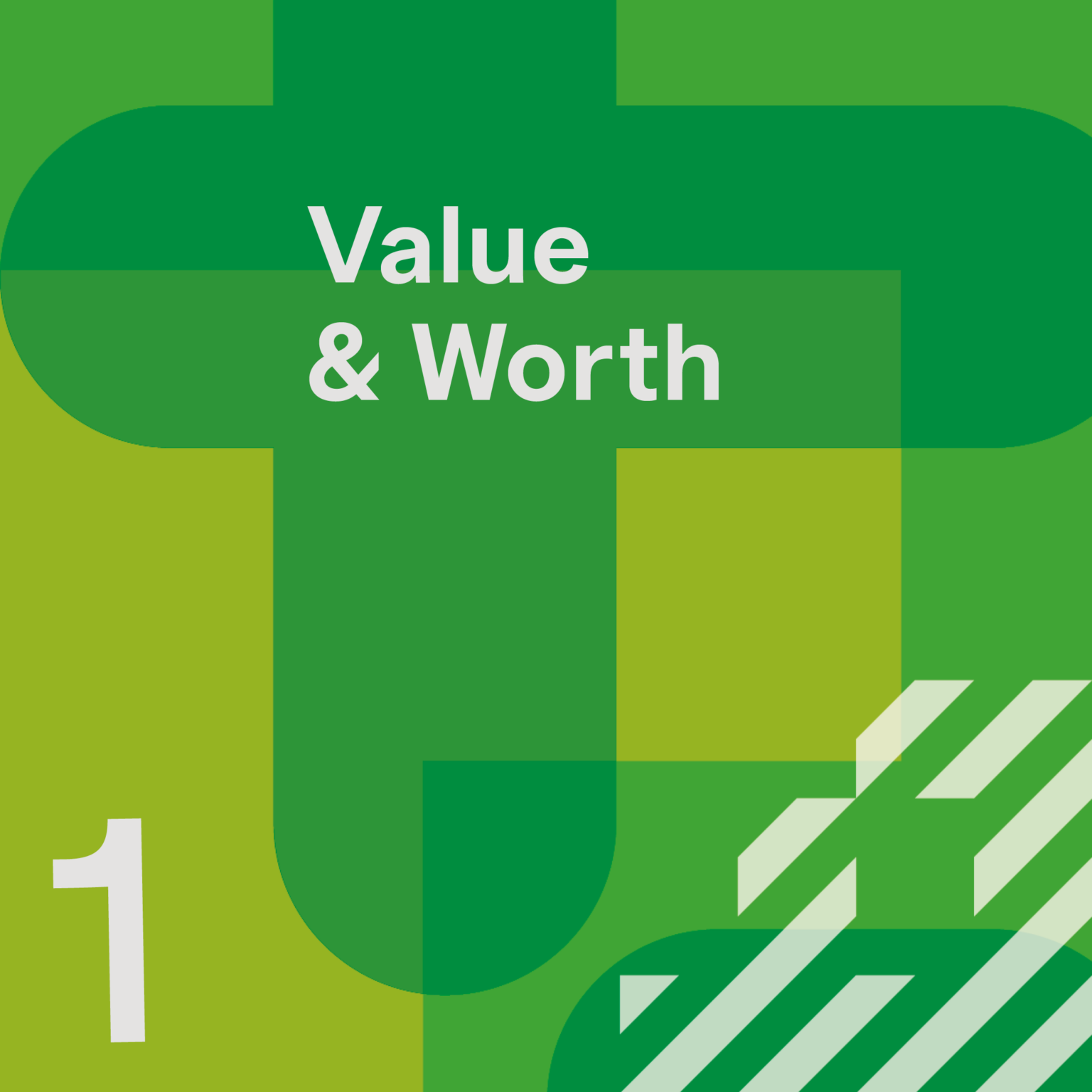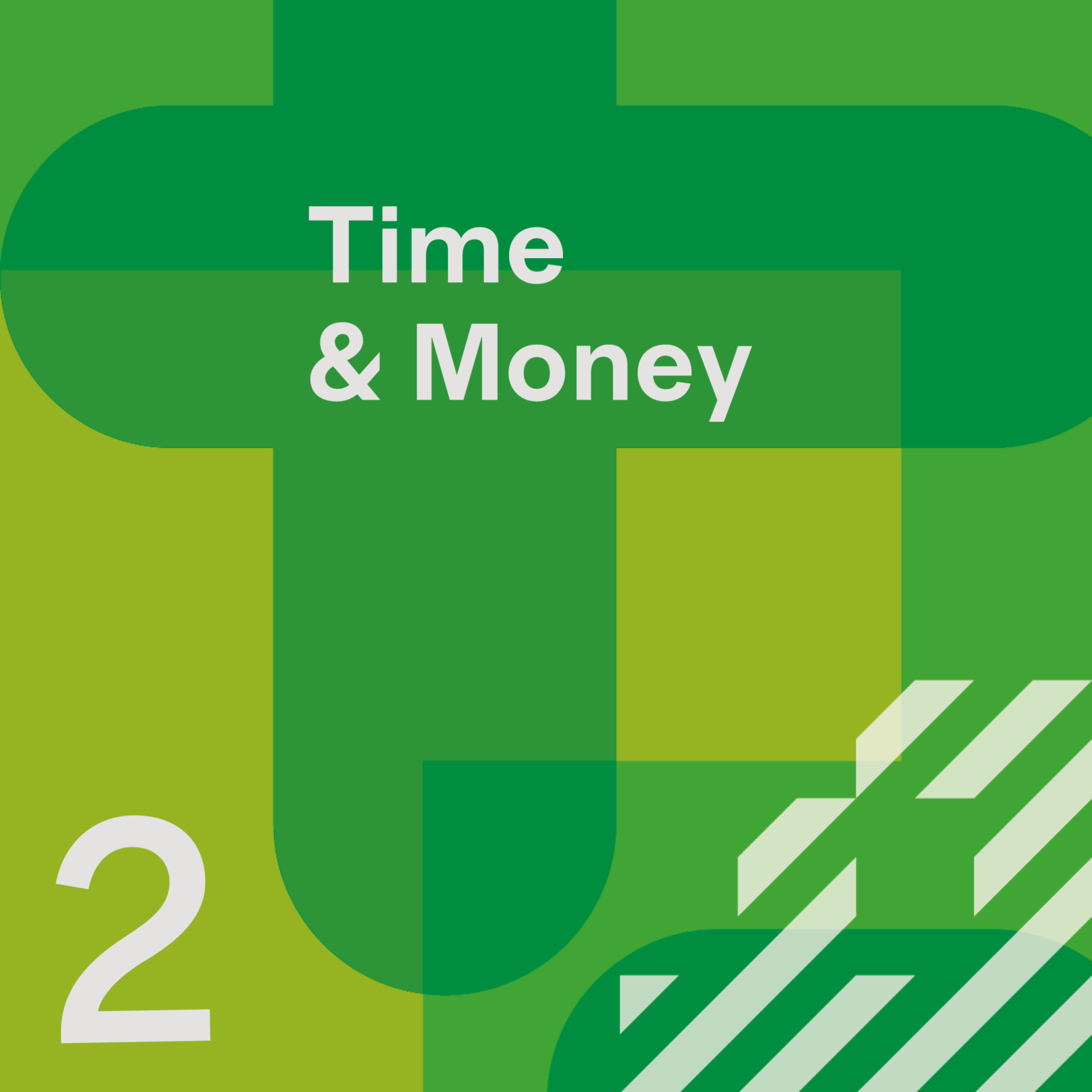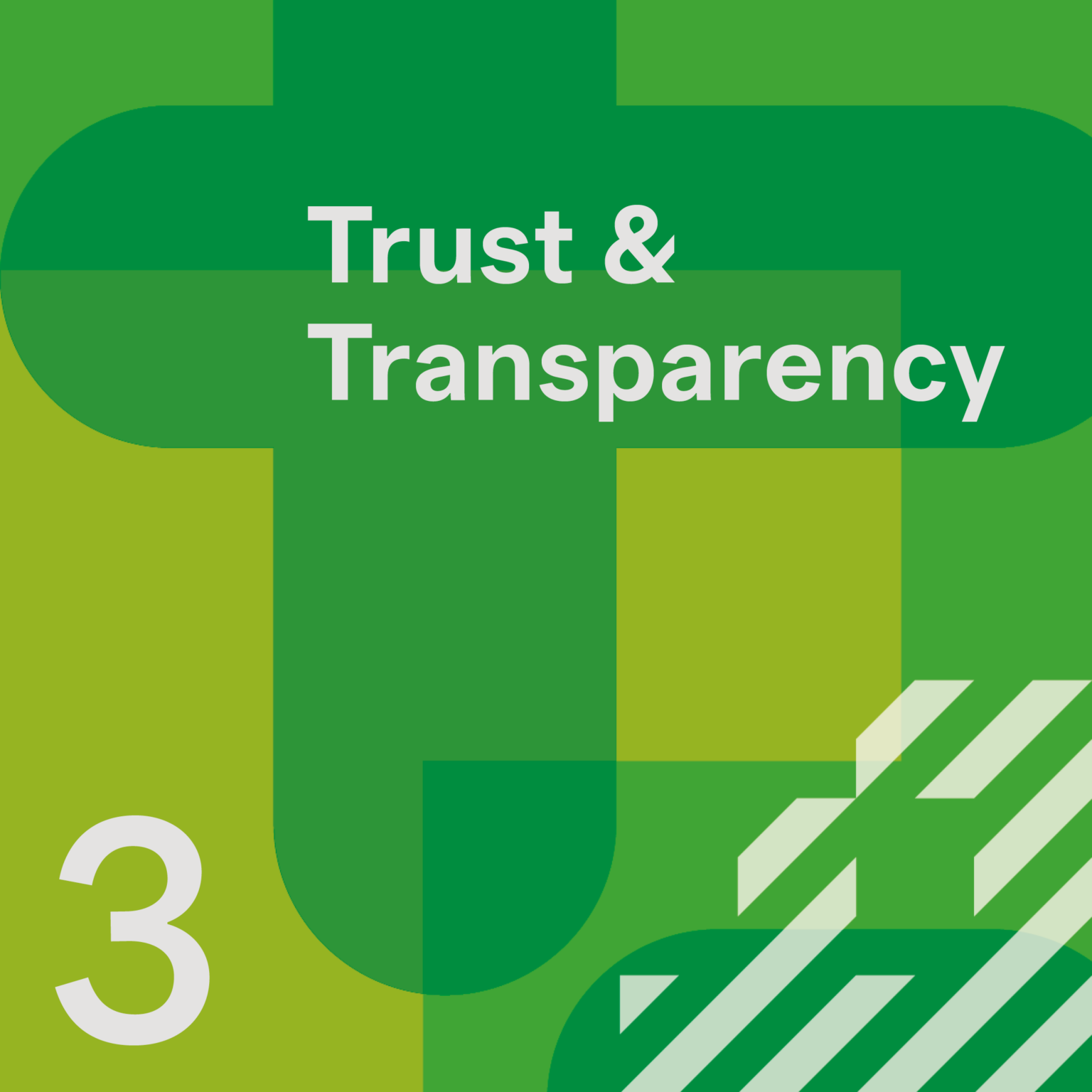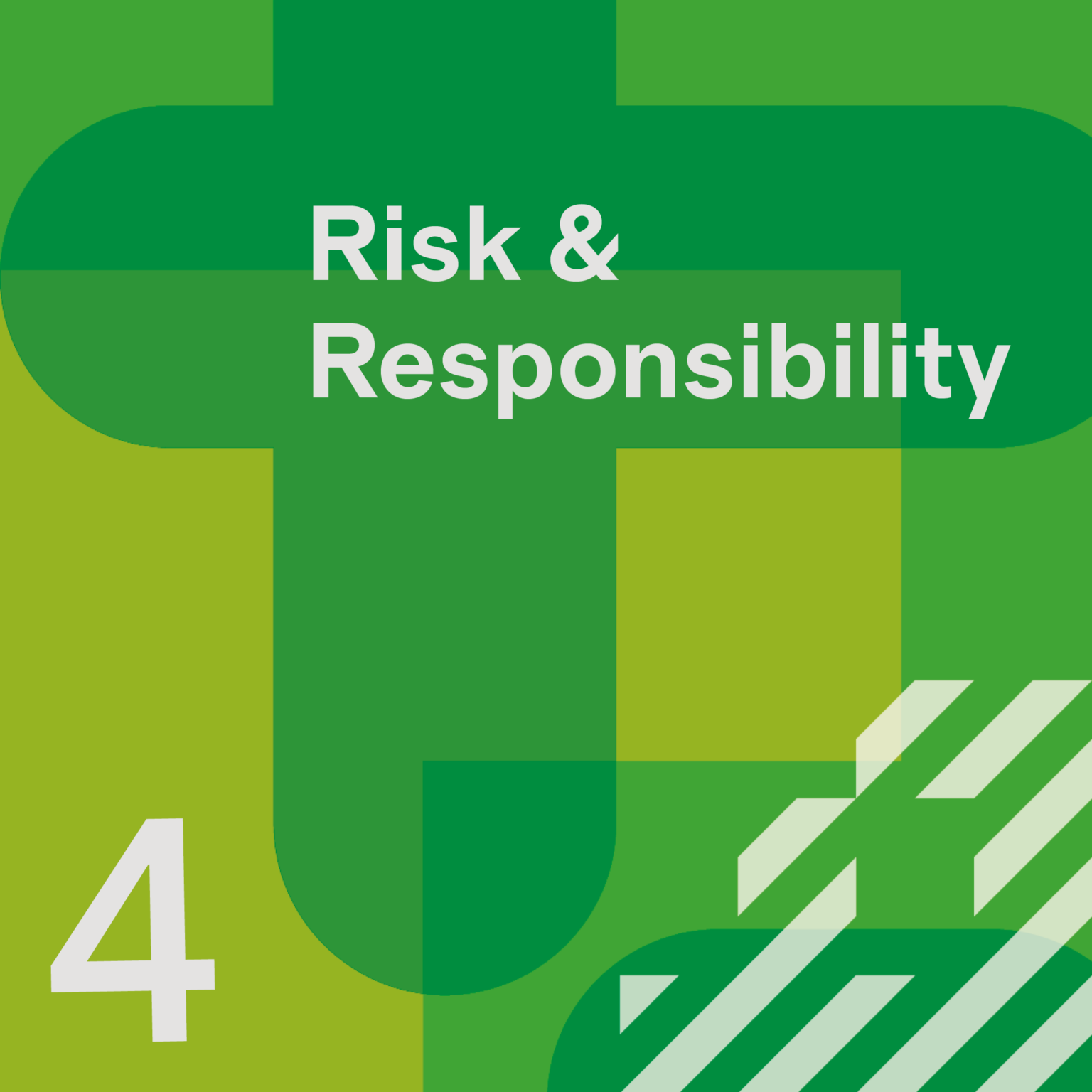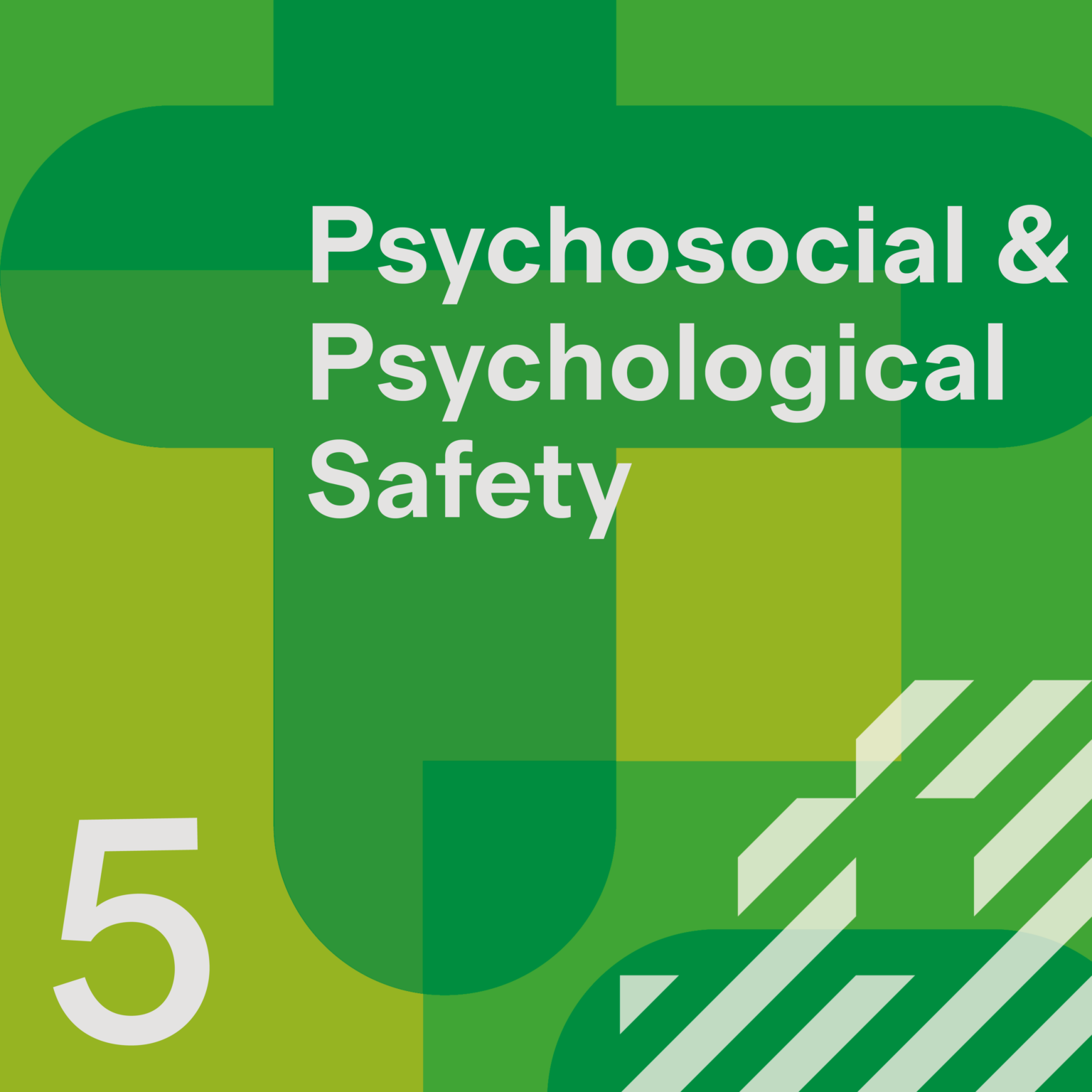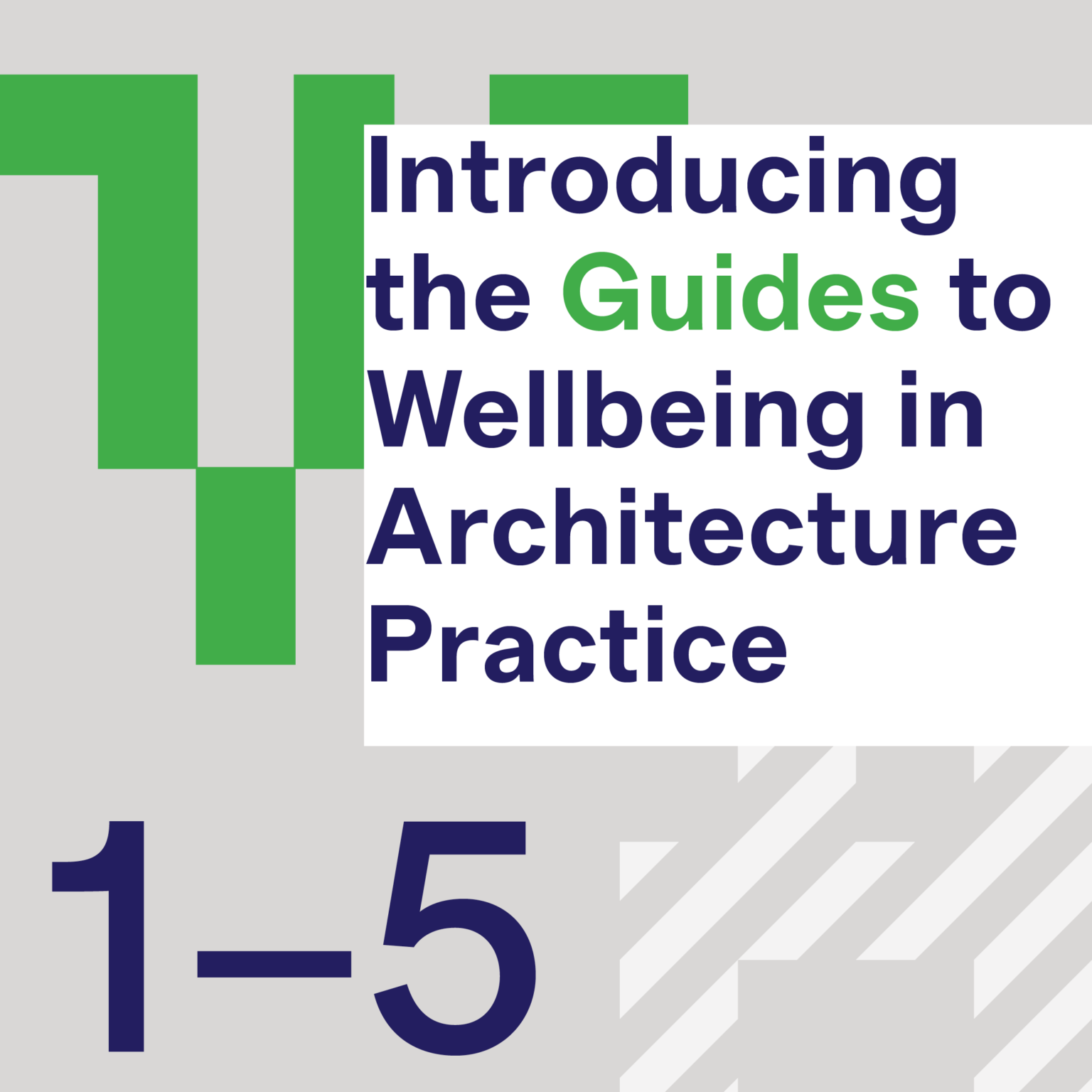Trust and transparency are vital to a healthy and productive workplace. Trust is established when people have confidence in their colleagues and leaders, while transparency relates to the openness and accuracy of information shared within practice.
Creating a work environment where everyone feels valued and engaged is crucial for the success of the practice and the wellbeing of all. Where there is a free flow of information, including about tensions and challenges within a practice or a job, staff have a greater insight into why leadership decisions have been made, and hence a greater understanding and often acceptance of those decisions. People feel empowered when they are trusted with information and, in turn, feel respected, supported and valued.
This guide investigates the benefits of workplaces that value trust and transparency and shows how this can support work-related wellbeing in practice. It provides guidance for practices, individuals and professional bodies to help support trust and transparency in the profession and explores the challenges involved in implementing workplace change.
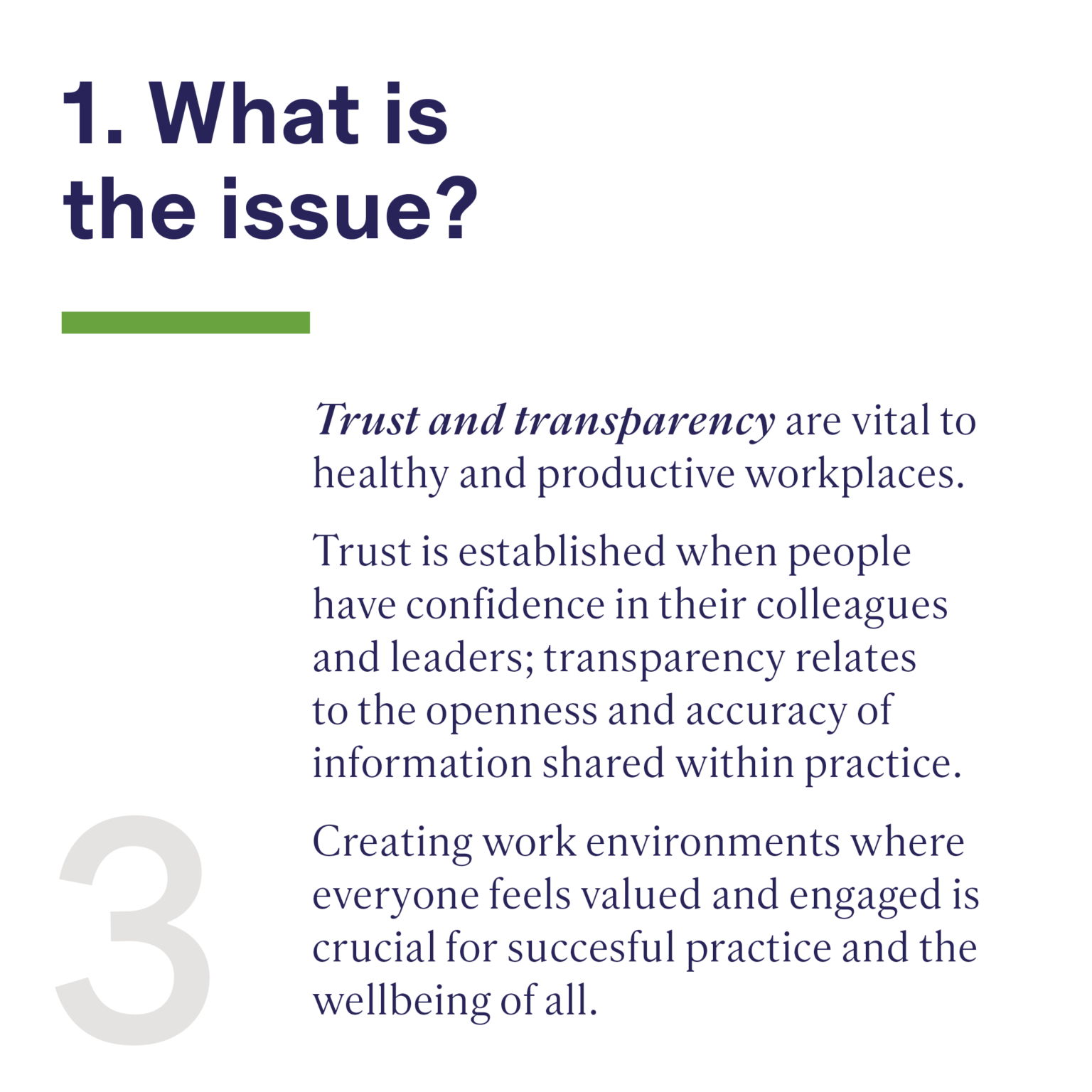
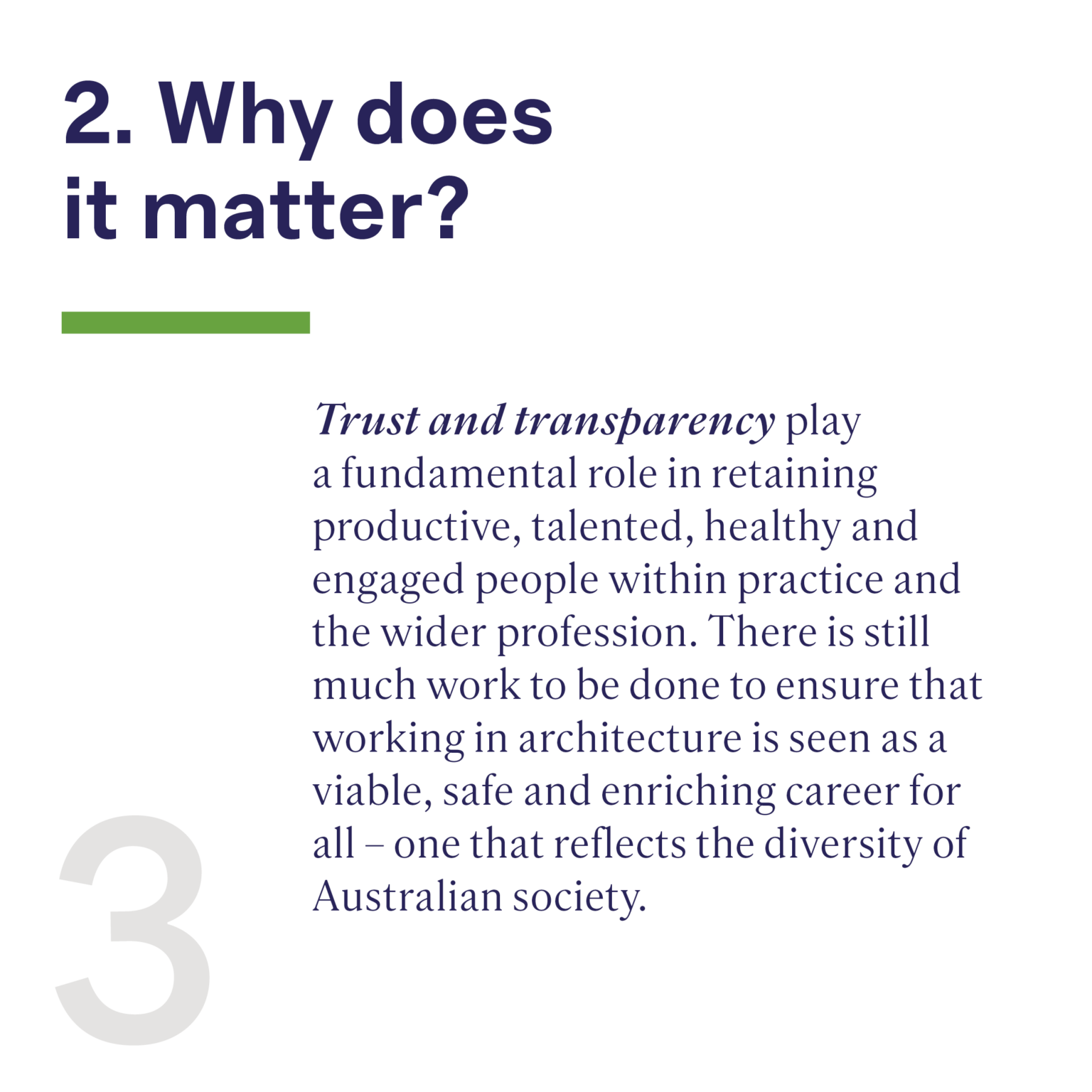
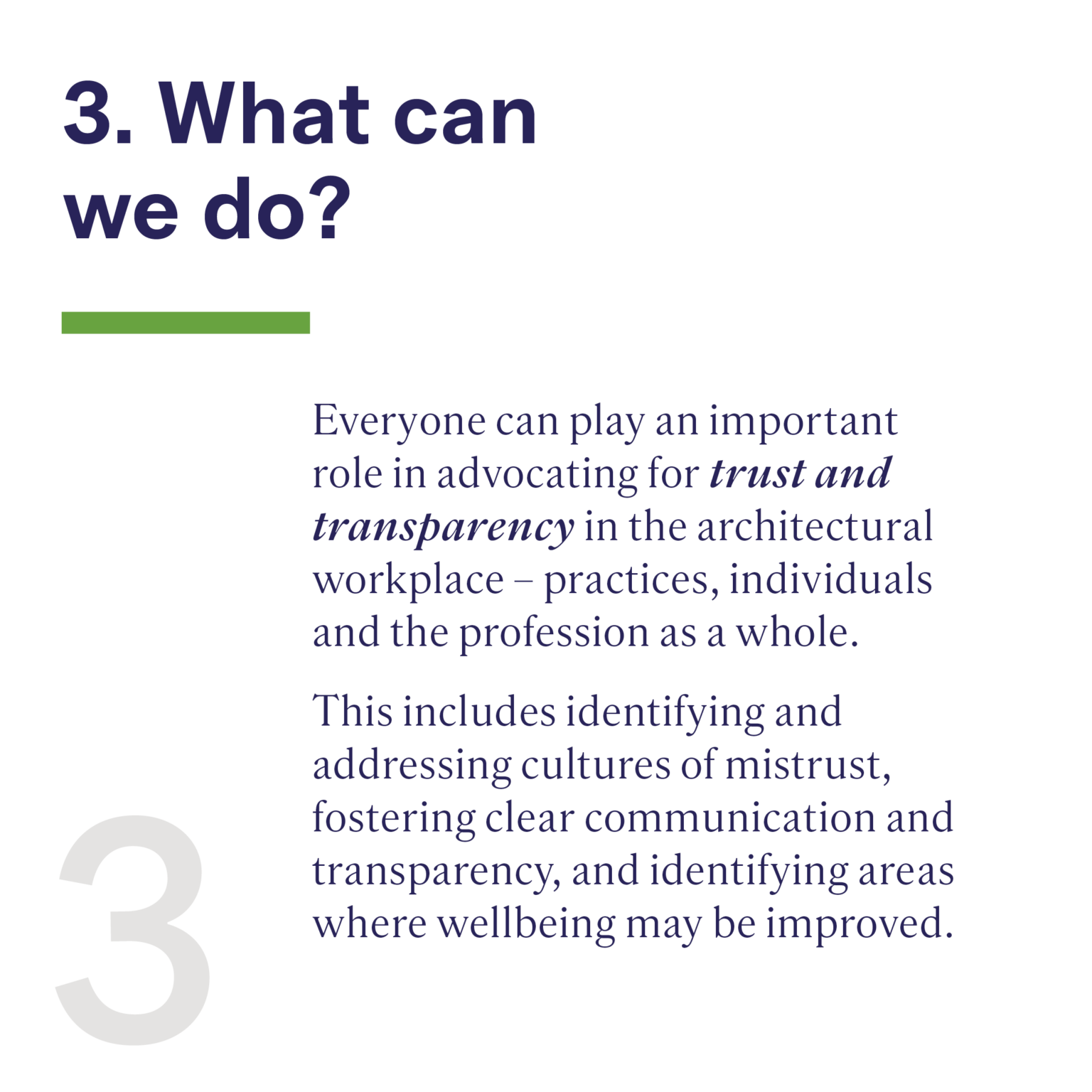
The Guides to Wellbeing in Architecture Practice are an outcome of the Wellbeing of Architects research project. They were published by Parlour in May 2024.
Primary authors for this guide are Susie Ashworth and Alison McFadyen. It was edited by Susie Ashworth and Justine Clark, with input from Naomi Stead, Kirsten Orr and Maryam Gusheh. The guide project was managed by Alison McFadyen, with additional writing and research by Byron Kinnaird, Naomi Stead, Liz Battiston and Vicki Leibowitz. Full credits are available in the Guide acknowledgements.
Read the full set of guides
DISCLAIMER These guides provide overviews only, with prompts for thought and ideas for consideration. They are not a substitute for professional or legal advice.
Individuals and practices should seek advice regarding policy on wellbeing, employment and human resources, as well as advice about particular situations, from their legal, HR or other business adviser. Like the other guides in this series, this does not offer medical opinion, diagnosis or advice – individuals should consult their health professional as appropriate.







